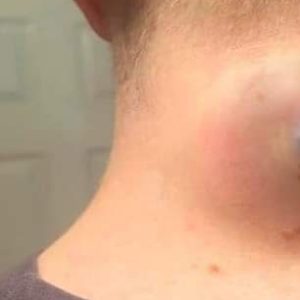One major sign for your eyes that you should pay attention to is blurred vision or sudden changes in vision. If you notice your vision becoming less sharp, objects appearing fuzzy, or sudden difficulty focusing, it could indicate various eye conditions. These include astigmatism, cataracts, glaucoma, or even more serious issues like retinal detachment. Any persistent changes in your vision should prompt a visit to an eye doctor for a comprehensive eye exam to determine the cause and appropriate treatment.
2. Eye Pain, Redness, or Irritation
Experiencing eye pain, redness, or irritation is another crucial sign to watch for. Persistent discomfort, itching, burning, or a feeling of something in your eye could be indicative of dry eye syndrome, allergies, or an eye infection. Ignoring these symptoms can lead to worsening conditions and potential damage to your eyesight. It’s essential to seek professional evaluation if you’re experiencing ongoing eye discomfort, as early intervention can prevent complications and relieve your symptoms.
3. Flashes of Light or Floaters
Flashes of light or sudden appearance of floaters in your vision should not be ignored. Seeing flashes of light, like lightning streaks in your peripheral vision, or noticing dark spots or specks drifting in your field of vision (floaters) could be signs of a retinal tear or detachment. These symptoms require immediate attention from an eye specialist to prevent permanent vision loss. If you experience these visual disturbances, especially if they are sudden or accompanied by a curtain-like shadow in your vision, seek medical help promptly.
4. Difficulty Seeing in Low Light
Difficulty seeing in low light conditions, such as dimly lit rooms or night driving, can be a significant sign of potential eye problems. If you find yourself struggling to see clearly in these situations, it might indicate issues with your night vision. This could be due to conditions like cataracts, age-related macular degeneration, or vitamin deficiencies. A comprehensive eye exam can help diagnose the underlying cause and provide appropriate management to improve your night vision and overall eye health.
5. Double Vision or Squinting
Double vision, where you see two overlapping images of a single object, or the need to squint frequently to see clearly, is another important sign to pay attention to. These symptoms might suggest problems with the alignment of your eyes (strabismus), nerve damage, or issues with the cornea. Double vision can significantly impact your daily activities and should be evaluated by an eye care professional to determine the cause and discuss treatment options.
6. Gradual Loss of Peripheral Vision
A gradual loss of peripheral vision, where your side vision decreases over time, can be a subtle yet critical sign of eye conditions like glaucoma. Glaucoma often develops slowly and without symptoms until significant vision loss occurs. Regular eye exams, especially for individuals at higher risk, such as those with a family history of glaucoma, are essential for early detection and treatment. If you notice a narrowing of your side vision, it’s crucial to seek an eye examination promptly to preserve your vision.
In conclusion, being aware of these major signs for your eyes can help maintain good eye health and prevent potential vision loss. Your eyes are vital for everyday functioning, so any changes or symptoms should not be ignored. If you experience any of these signs or symptoms, schedule an appointment with an eye care professional for a thorough evaluation. Early detection and treatment of eye conditions can often prevent further deterioration and preserve your vision for years to come.





